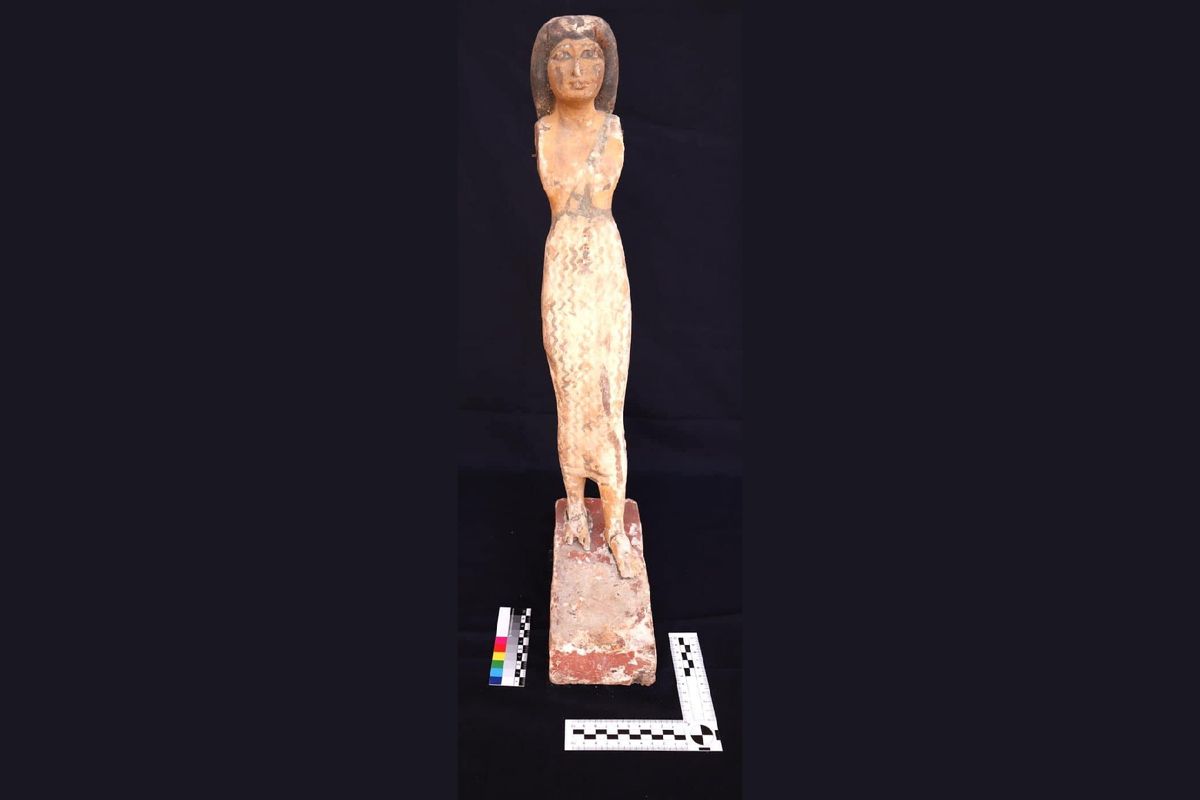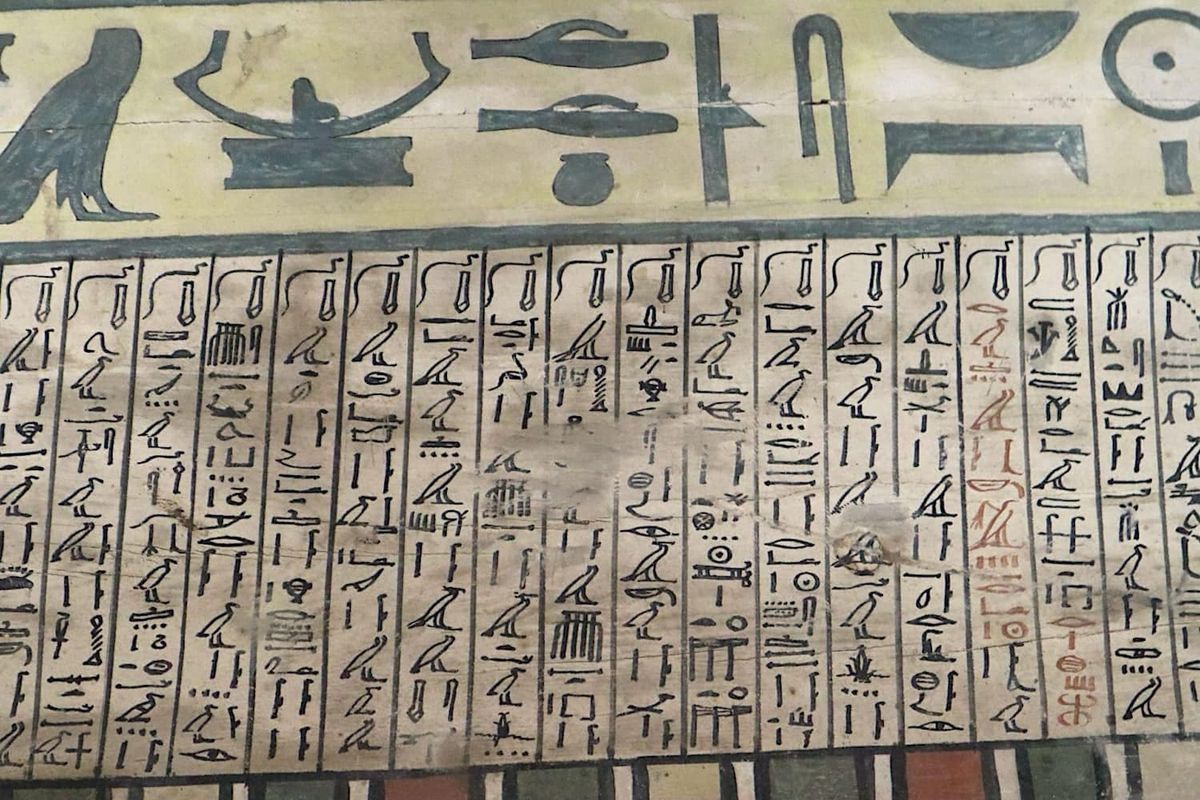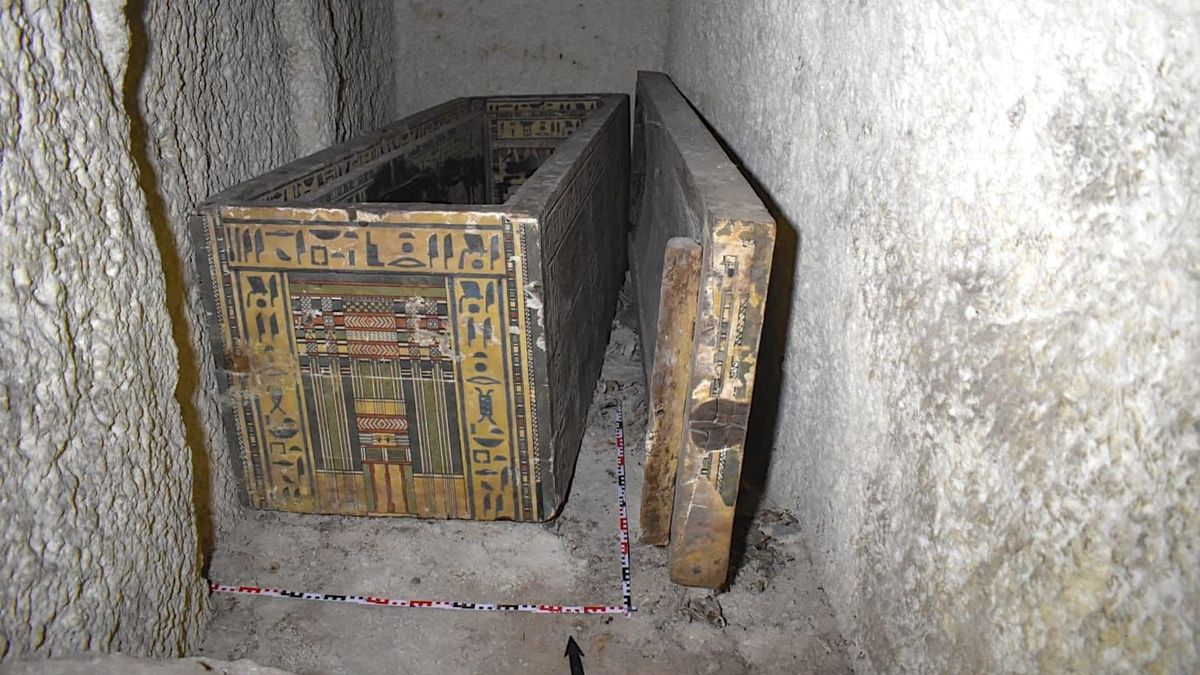Archaeologists have discovered the 4,000-year-old ancient Egyptian tomb of “Idi,” a local governor’s daughter who lived during Egypt’s Middle Kingdom (circa 2030 to 1640 B.C.). She was buried within two coffins, one inside the other, representatives of the Egyptian Ministry of Tourism and Antiquities wrote in a statement on Facebook.
“Finding two intact Middle Kingdom coffins is extraordinary,” Kathlyn Cooney, a professor of ancient Egyptian art and architecture at UCLA who was not involved with the excavation, told Live Science in an email. These coffins “not only seem well preserved but [are] covered with intricate coffin texts that helped the deceased find their way in the realm of the Underworld,” Cooney said.
Studying the new coffin texts may provide more information on how the Egyptians viewed the afterlife, said Caroline Arbuckle, an assistant professor of history at the University of Saskatchewan who was not involved with the excavation. “It is always possible that Egyptologists will find new variations, and these help us to better understand what the ancient Egyptians were afraid might stop them from reaching their eternal paradise, or what they felt they might need in the underworld.”
Idi lived during the reign of Senwosret I (circa 1961 to 1917 B.C.) and was the daughter of Djefaihapi, the governor of Asyut, one of the richest provinces at the time.
Her tomb was robbed in ancient times, but parts of the skeleton remained. Analysis of those skeletal remains revealed the woman likely died before age 40 and had a congenital defect in one foot.
Related: 4,300 year-old tomb with stunning wall painting was burial place of priestess and royal official

The larger of the two coffins was 8.6 feet (2.6 meters) long, while the smaller one was 7.5 feet long (2.3 m), according to the statement. Archaeologists also found the remains of a coffin lid and wooden figurines.
One of the wooden figurines shows a standing woman who may be Idi. If it is, it would “add to a very limited data set of funerary objects that presumably depict the deceased,” Cooney said.
In fact, two figurines may depict Idi, Francesco Tiradritti, an Egyptology professor at the Kore University of Enna in Italy who is not part of the excavation, told Live Science. A second figure may show a woman marching. “I am wondering if that statue does not depict the soul of Idy that is coming out from the tomb,” Tiradritti said.

Wolfram Grajetzki, an Egyptologist and honorary senior research fellow at University College London who was not involved in the research, told Live Science that the coffin’s hieroglyphs call Idi the “lady of the house.”
Many tombs and burials have been discovered at Asyut over the past 130 years, and some were found in excavations of dubious legality, he added. Artifacts from those excavations are now in museums around the world.
“It is nice to see here a burial that is discovered by a modern team and will get a proper recording and publication,” Grajetski said.
The tomb was found by a team from the University of Sohag in Egypt and The Free University of Berlin. Live Science contacted researchers involved with the excavations but did not hear back by the time of publication.

